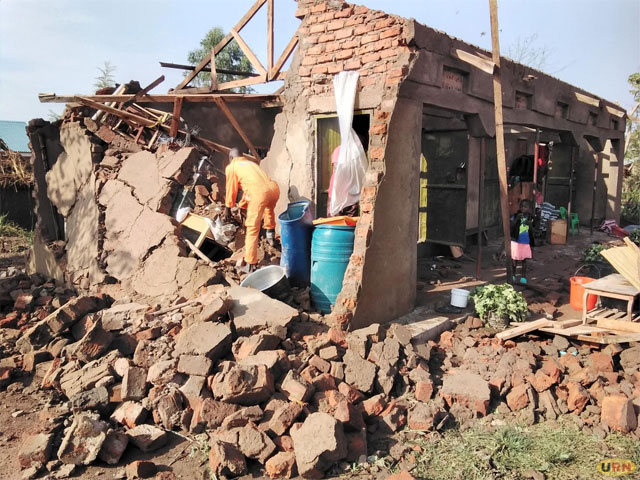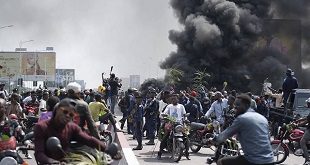
Tororo, Uganda | THE INDEPENDENT | Hundreds of people are homeless in Magola and Iyolwa sub-counties in Tororo district following a heavy downpour that destroyed their homes.
The heavy rains accompanied by heavy winds and hailstones pounded the district on Monday and Tuesday, destroying several houses and crop gardens. Hardest hit were the banana and cassava plantations.
Police rescued over 52 people from the rubble of their destroyed houses. Some of the victims are admitted to Tororo main hospital with serious injuries.
Proscovia Kungere, a resident of Mile trading center and one of those whose house was blown by the wind, confirmed her mother together with her two children were injured and are in hospital.
“I was in Mbale when I received a phone call from my cousin, who told me my house has collapsed on the twins and my mother,” said Kungere.
Rose Mary Nalumancy, a resident of Asinge zone in Magola Sub County, says that they currently lack food because rain washed away her house together with the food they had stocked for use.
According to Nalumancy, she is currently sharing the house with her father, which contravenes their traditional norms.
Charles Osikol, a teacher in charge of sciences at Renner High school, says the rains destroyed the property at school including the science laboratory that is being used by senior four candidates.
“The storm was so serious, it blew up the roof and all the lab equipment costing over sh5million that we had just used. Now for the UNEB physics practical’s due tomorrow, we are in a dilemma,” Osikol said.
Nebart Ofumbi, the Magola Sub-county Gombola Internal Security Officer- GISO survived death when the heavy winds blew the house where he was taking local brew with several other people.
Ojwang Obbo, the Magola Sub county LC 3 Chairperson has called for the immediate intervention of the local and central government to help the affected people.
“The storm was so disastrous, actually historically disastrous. Many people have never witnessed this….. many peoples homes brought down, roofs blown off, then a hailstorm destroyed the cassava and other food crops, with banana plantations completely destroyed,” said Ojwang Obbo.
“Many people survived death because their houses collapsed on them, but many are nursing wounds.”
*****
URN
 The Independent Uganda: You get the Truth we Pay the Price
The Independent Uganda: You get the Truth we Pay the Price


